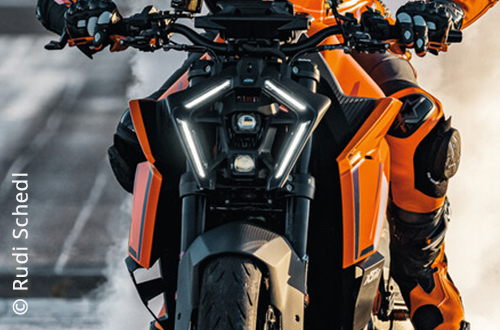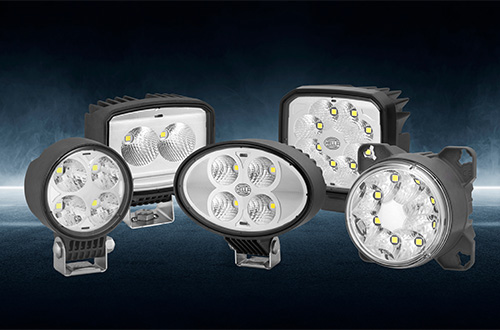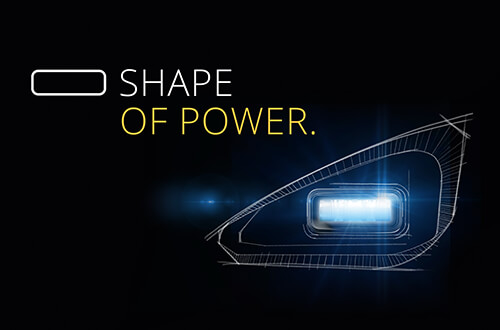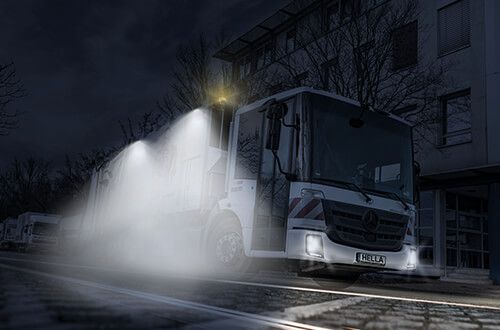|
|
|
|
|
|
|
|
SHAKE Road Condition Sensor Supported on NVIDIA DRIVE Hyperion Platform
21-09-2022HELLA, the automotive supplier operating under the FORVIA umbrella brand, announced today its innovative Structural Health and Knock Emission (SHAKE) sensor for road condition detection is now supported on the NVIDIA DRIVE Hyperion autonomous-vehicle development platform. With the SHAKE sensor, vehicles are able to hear and feel the environmental noise spectrum, analyse those characteristics, and initiate actions for driver safety and comfort.
The keypoints in short
- Structure-borne sound sensor SHAKE identifies road conditions and detects water film on road surfaces
- Sensor technology complements existing assistance and safety systems, enabling vehicles to “see”, “feel” and “hear”
- HELLA 77 GHz radar sensors also qualified for NVIDIA autonomous-vehicle development platform
How is the NVIVIA development platform structured?
NVIDIA’s production-ready DRIVE Hyperion platform includes a computer architecture, software, and a safety-certified sensor suite, in order to accelerate development and simplify integration. Designed to be modular, the platform enables manufacturers to use what they need for their unique vehicle requirements. In addition to the SHAKE road condition sensor, HELLA’s 77 GHz radar sensors are supported on DRIVE Hyperion.
What distinguishes the SHAKE sensor?
As a member of NVIDIA’s DRIVE ecosystem, HELLA is the first supplier to offer a solution for accurate, real-time measurement of the water level on roads. The SHAKE sensor detects vibrations and airborne sound from water drops that have been stirred up and uses this to determine the degree of wetness between the tyre and the road. Previous solutions addressed this issue by calculating the amount of water using high-powered cameras. However, these technologies cannot offer enough information to drivers or self-driving systems to make critical driving decisions.
“Our SHAKE sensor outperforms any technology with a similar scope that is currently available and challenges common thinking about what a car can achieve. By using a smart sensor, a vehicle can now not only see, but also hear and feel its surroundings,” said Marco Döbrich, head of the Sensors business field at HELLA.
“The ability to augment the environmental-sensing capability vision of radars, lidars and cameras with the HELLA SHAKE road condition sensor will improve autonomous vehicle safety,” said Gary Hicok, senior vice president, at NVIDIA. “Providing current, precise road-condition data will enable vehicles to adapt automated functions for safe driving in real time.
Using a piezoelectric element, the SHAKE sensor detects vibrations and airborne noise from water droplets swirled up in the air and determines
the degree of wetness between tyre and road.
How does the SHAKE sensor the vehicle awareness?
HELLA has developed the SHAKE sensor for road condition sensing to improve vehicle awareness by detecting structure and airborne sounds via a piezoelectric film element. This element’s acute sensing capabilities give car systems the information they need to make critical driving decisions. For example, assistance systems can predict the braking distance depending on the wetness of the road; adjust the control systems of the longitudinal and lateral dynamics; and actively adapt a car’s distance to the vehicle in front of it.
The piezoelectric film element, core to the sensor, is able to detect all types of structure and sound-borne waves, including wave frequency and duration. The advanced sensor can even differentiate between contact from a water splash on the sensor and that of gravel hitting it.




